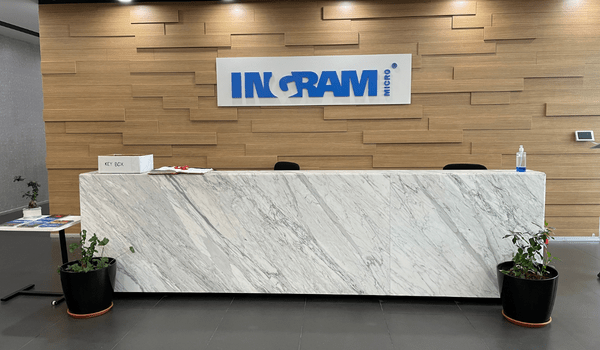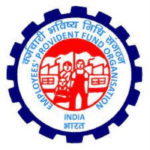An effective induction programme is said to positively impact a new employee’s integration within the team and organisation as a whole. According to a 2020 resourcing and talent planning survey conducted by CIPD, a UK-based professional body for HR and people development 42 per cent of organisations are improving their induction process to boost retention.
Ingram Micro, a global distributor of information technology products and services has launched one such well-designed new-hire induction initiative. Aptly named ‘Shubh Aarambh,’ auspicious beginning — the three-day orientation programme thoroughly acquaints new employees with the organisation’s business, culture, policies and people. Minakshi Samant, executive director of human resources, Ingram Micro, speaks at length to HR Katha, detailing the objectives of ‘Shubh Aarambh’ and how it is intended to help foster a long-term employer-employee relationship.
Three days of acquaintance
The first physical session of ‘Shubh Aarambh’ was held in July 2022, although it had been virtually organised a few times earlier. Held roughly once a month at the Company’s head office in Mumbai, each session sees the participation of 25 – 30 newly-joined employees. “Even people hired from remote locations get an opportunity to travel to Mumbai with all travel and accommodation expenses paid. This makes a huge difference,” emphasises Samant.
She further opines that while a candidate is typically hired – thus deemed fit for an organisation – following a one-hour interview, three days allow plenty of time for mutual acquaintance. “’Shubh Aarambh’ is entirely worth the energy and effort,” says Samant.
“The programme offers the new employees a chance to know if they have joined the right organisation. At the same time, it gives us an opportunity to find out if we have hired the right people,” she adds.
Samant explains that each day of the three-day programme encompasses a string of pre-planned activities.
Day one acts as a prelude, offering the new recruits a broad overview of the company ethos and vision. Senior leaders address them, recounting their journeys at Ingram Micro, and explaining their respective responsibility matrix at the organisation.
On day two, existing employees from across departments, finance, sales, logistics, HR — speak to them about their job functions and roles, familiarising new employees with their upcoming job responsibilities.
“The induction programme offers new employees a chance to know if they have joined the right organisation. At the same time, it gives us an opportunity to find out if we have hired the right people”
Minakshi Samant, executive director of human resources, Ingram Micro
Day three is entirely focused on practical work-life, with the recruits being taken on an organised tour of the Company warehouse at Bhiwandi, to gain a thorough understanding of the operational activities and distribution process.
The third and last day of the induction programme is intended to essentially give the new hires an idea of what happens at the end of the chain or channel. “So, we begin with the company vision, go on to mission — smaller, departmental goals and objectives for achieving the vision — and finally show them action and delivery at the warehouse where we have an interface with our customers and vendors,” she elucidates. “This gives them an overall understanding of Ingram Micro”.
Abiding relationship
So what were the objectives behind launching such a comprehensive orientation programme?
According to Samant, ‘Shubh Aarambh’ was launched mainly to encourage proximity between the organisation and new employees, transcending professional identity. More important, it is designed to forge a long-standing, productive and abiding relationship between Ingram Micro and its workers. Additionally, it is meant to disseminate information regarding the Company and its compelling brand story.
“Early on, if things do not go well in an employer-employee relationship, it becomes easy to quit. This is because, the employee feels no connection or bond with the brand,” opines Samant. She elaborates that ‘Shubh Aarambh’ aims to build that strong emotional connect, besides urging employees to look at the larger picture — the brand and corporation; its sheer size and scale — rather than just their department, team and manager.
Interestingly, Samant’s own experience at Ingram Micro also played a role in launching the initiative. “I joined Ingram Micro, virtually, in 2020. I never got a chance to visit my office, meet my colleagues, my boss, my team,” she recalls. “This drove home to me the point of forging a connection. That relationship remains superficial without a measure of acquaintance. One is never sure they truly know the company,” she underlines.
Environmental and social governance
‘Shubh Aarambh’ is said to be conducted with an unwavering commitment to environmental and social governance. Explaining its significance, Samant says that Ingram Micro’s commitment to these causes is amply articulated in the way it conducts ‘Shubh Aarambh’.
“We have abandoned the use of plastic bottles. All through the programme, participants are offered glass bottles and glasses so they can help themselves to only as much water as they need, minimising the wastage of both plastic and water,” she reveals.
“Each day of the programme ends with a brief survey to gauge the participants’ response. Here too, we have made an environment-friendly decision to not use paper for the survey. Instead, we have moved to a mobile app to record responses,” she informs.
As far as social governance is concerned, Samant adds that Ingram Micro’s commitment to increasing diversity in the organisation by including more women, LGBTQ+ community members and physically-challenged persons is articulated to the recruits.
“To begin with, we have already hired a transgender woman – the very first – and two physically-challenged persons,” she mentions.
Ingram Micro ‘family’
While studies suggest that effective induction can reduce attrition and employee turnover, boosting employer brand, Samant points out that ‘Shubh Aarambh’ was never strictly outcome oriented. “’Shubh Aarambh’ was not launched to achieve one tangible objective such as retention,” she clarifies. “I was only looking to do the right thing. A positive outcome will anyway follow if we do the right thing. Employee retention is inevitable if we keep our employees engaged, happy and connected – beyond work,” she underlines.
Has the programme shown any results so far?
“‘Shubh Aarambh’ was virtual till even recently. So it may be a little early to say,” she answers, but “I am looking forward to comparing this year to the next, confident that infant attrition will see a substantial dip as a result of this induction,” she adds.
Describing Ingram Micro as an oganisation conducive to personal growth, Samant also explains how ‘Shubh Aarambh’ exposes the new entrants to this facet.
“Day two of the programme typically sees some of the older employees open up to narrate their lived journeys at Ingram Micro, including real-life examples of how they faced so-and-so obstacle, but ultimately, thanks to an enabling environment – struggled it out, successfully overcoming the hurdles”. According to Samant, such stories stir, inspire and enrich even as they inculcate values such as tenacity and the will to fight.
Significantly, Samant mentions that the families of employees are seen as part of the extended Ingram Micro family. “One of our employees once shared that even if he ever considered quitting Ingram Micro, his wife wouldn’t let him. This is what I mean by building an emotional connect with the employee, extending to family, transcending the realm of work and workplace”.
In a nutshell, ‘Shubh Aarambh’ aims to ensure that new workers do not view Ingram Micro as just another employer. “We tell our new joiners they are ‘welcome to the Ingram Micro family’; you do not do things for your family, expecting something in return,” concludes Samant.
Value our content... contribute towards our growth. Even a small contribution a month would be of great help for us.
Since eight years, we have been serving the industry through daily news and stories. Our content is free for all and we plan to keep it that way.
Support HRKatha. Pay Here (All it takes is a minute)




































